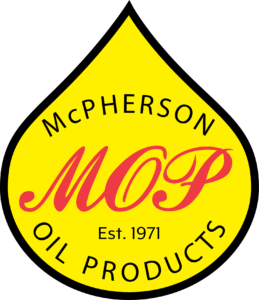The Importance of Lube Technician Training
14 Aug 2019, Posted by in Industry Information, Oil Tips How many lube technicians does it take to ensure optimum production reliability?
How many lube technicians does it take to ensure optimum production reliability?
Well, there is no one-size-fits-all answer to this question. Yet what is universally true is that organizations should develop a proactive plan that considers their current and future personnel needs.
Do you have a new group of talents joining you as lubricant specialists? Do you anticipate some of your existing experts retiring soon? Are you doing enough to grow your next generation of leaders?
Regardless of your situation, you have to consider that many factors determine how many lubrication specialists are needed in any given operation, including:
- Physical size and layout of the plant
- The type of applications being performed
- The amount of machinery in action
- The complexity and accessibility of the machinery
Thus, as outlined below, providing individuals with the relevant training, skills, and development opportunities can help ensure your company’s productivity goals and equipment maintenance programs are overseen by team members who are well-informed about lubrication-related issues.
Stage 1: Basic Knowledge
In order for personnel to effectively implement a maintenance program, they must first have a basic know-how of general lubrication practices, including lube storage and handling, oil analysis, and contamination control.
Lube technicians require weeks of thorough training to develop a comprehensive knowledge base, followed by additional training more specific to their day-to-day responsibilities.
Stage 2: Skill Development and Certification
After undergoing initial training, all lubrication professionals should be given frequent “refresher” courses to keep their skills fine-tuned and up to date with the latest technology and trends in machinery lubrication.
For plant managers to really know that their lube technicians can perform a particular task, they should invest in certification programs for their employees. Certification ensures that an individual has the knowledge and skills to do their job, while also instilling in them a sense of pride and commitment.
Stage 3: Opportunity to Innovate
Personnel who have had extensive training and education in lubrication maintenance will truly understand the crucial role it plays in machinery operation and failure. Having a comprehensive knowledge of lubrication and a detailed understanding of how it works allows technicians to innovate new approaches to recurring problems. They can identify issues and implement solutions because they possess not only the skills and understanding but also the confidence in their technical knowledge.
About: McPherson Oil has provided the southeast with quality products and services since 1971. As a proud distributor of ExxonMobil products, we offer these services through our belief in TPM – Total Petroleum Management. Through our TPM program, McPherson brings a valued-added difference to its customers by meeting all of their petroleum needs. Our commitment to our customers is reflected in our company vision and mission statements. McPherson proudly services Alabama, Arkansas, North and Central Georgia, Mississippi coast, Florida panhandle, Greater Chattanooga Area, the Greater New Orleans Area and Louisiana and Mississippi Gulf Coast.
*Source: ExxonMobil’s Mobil Connect “The importance of lube technician training.”
